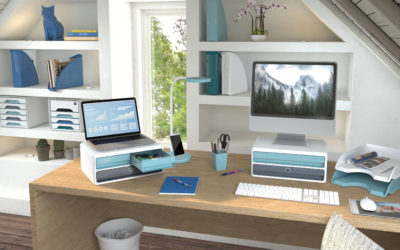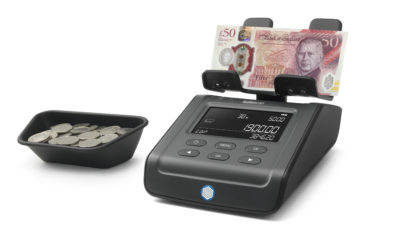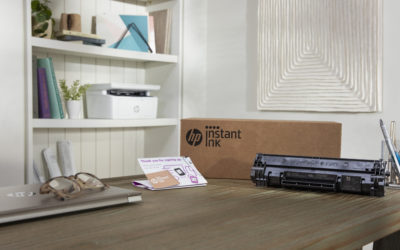With the rise in the amount of small businesses over recent years and new legislation on flexible working, more and more of us are choosing to create a working environment within our own homes.
From fully converted rooms to separated working areas, organising a workspace away from the office can really help you stay focused. Although, when your home is your office, it can be hard to separate the two – leaving you feeling like you should be working instead of relaxing.
How can I create an ideal home office?
Location, location, location
When it comes to your home office – it’s all about the location. You need a space that is specifically designated for business matters, yet doesn’t infringe on your home or family life. Popular choices tend to be a spare bedroom, the conservatory or a loft conversation. Alternatively, you could turn your garage into your own professional paradise. If you don’t have the additional space available, using a partition wall or room divider could be an option to keep your office away from the rest of your home.
Sit comfortably
You don’t need to spend a fortune, but having a comfortable chair to sit on while you work is important and reduces your risk of back trouble – especially if you work from home a lot. Buying an ergonomic chair and making sure it’s at the right height for your table or desk is essential.
Create that office vibe
Giving your room a mini office look will help you to stay motivated. As well as a desk and chair, think about incorporating the likes of filing cabinets, a printing station and perhaps a whiteboard for brainstorming ideas. With just a few small pieces of furniture, you can create the perfect working environment to help you be productive.
When it comes to you, getting in the right attire can help you to fully focus in your home office. If you wear the clothes you’d just lounge around watching television in, your mind could revert to procrastination mode. But if you actually make an effort with your appearance, you’ll feel fresh, sharp and – most importantly – professional. Then, just like if you worked in an office away from your home, you can take off your smarts at the end of the day.
Take a call
While telephone is an essential piece of equipment in any office, you should avoid the temptation to use your own landline or mobile number for your home office’s phone. Do you really want to be accepting business calls before you sit down for your evening meal, or while you’re enjoying a Sunday morning sleep in?
Getting a separate line fitted into your office, or having a mobile phone number specifically for work – and setting up an “out of office” answer message for when you clock off for the day – will create a barrier between your work and personal life.
Clocking off for the day
One of the tendencies of working out of a home office is to put in extra hours here and there. But would you do this if you were part of a larger company? You need to draw a line in the sand and set some definitive guidelines as to what time you start and finish.
There is more flexibility these days, following the rise in flexible working options in many UK offices. But to truly keep work matters away from your personal and family life, you need to set boundaries. Keep a logbook of how many hours you work each day, and perhaps keep a running total, ensuring you don’t over go a fixed amount of hours each month.
Whether you’re looking to create a place for your everyday 9-5, or you’re planning on a spending a few days a week in your home office, joining the home working revolution can be exciting.








